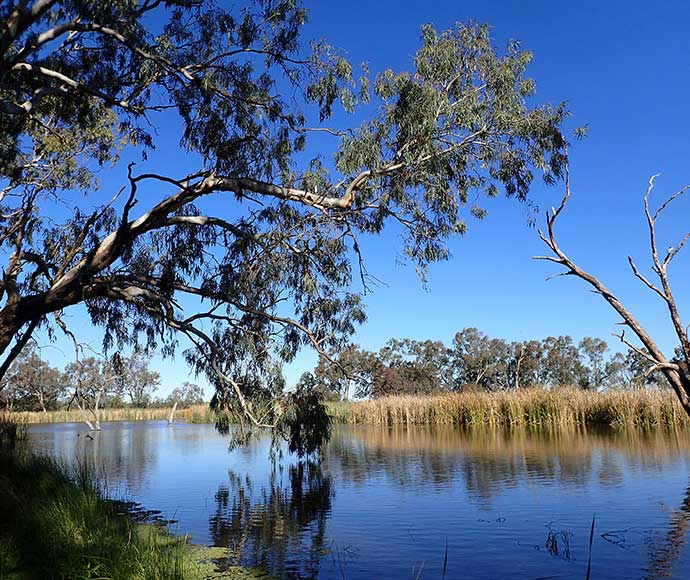Our water resources are of major environmental, social, health and economic value. The quality of these resources is closely linked to the surrounding environment and land use.
Water quality often declines as rivers flow through regions where land and water use are intense and pollution from agriculture, large towns and cities, industry and recreation areas increases.
Poor water quality has a negative impact on public health, the health of our ecosystems, recreational activities, farming, cultural and spiritual needs, and other activities.
The standard of water quality in New South Wales is set by the NSW Water Quality Objectives, which are the agreed environmental values and long-term goals for waterways in New South Wales.

Monitor, measure and protect
The Department of Climate Change, Energy, the Environment and Water plays a lead role in protecting water quality in New South Wales.
We develop best practice approaches to monitoring water quality and conducting health assessments of waterways. These approaches support councils and other water managers to manage potential impacts on waterways.
Health assessments of waterways:
- evaluate the quality of water
- monitor changes in water quality
- determine whether water is suitable for the health of the natural environment
- determine whether water is suitable for human consumption and other uses such as irrigation, fishing or swimming
- determine if water quality meets the NSW community’s values and uses of waterways.
We also provide data and assessment tools to support the delivery of government initiatives.
Find out more about how we monitor, measure and report water quality.
Healthy waterways
To help keep our waterways healthy we work to:
- improve water quality and reduce litter in our oceans through the Marine Estate Management Strategy
- monitor and inform the public about water quality at our beaches through the Beachwatch program
- support councils and other agencies to improve waterway health
- help the community tackle difficult water quality problems, such as stormwater pollution
- develop and implement water quality management strategies with other government agencies, water boards and local councils
- meet the standard for water quality as set by the NSW Water Quality Objectives.